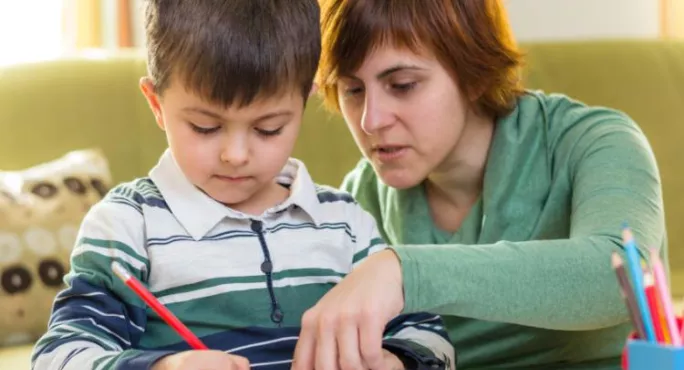
- Home
- 5 Covid changes to EYFS we want to keep
5 Covid changes to EYFS we want to keep

The “first day back” September nerves were more acute this year due to the wholesale changes required to make our early years provision “Covid-safe”.
At first, we feared many of these changes would be to the detriment of the setting, but nearly half a term in, that’s not always been the case.
Coronavirus: Five positive changes we’ve made in EYFS
In fact, there are some changes we have made that seem to have made things better. Here are the five that we would like to keep next year.
1. Virtual parent meetings
With home visits completely out of the picture, we had to think of other ways in which we could carry out our usual transition process for our new children.
As a team, we decided that the best solution would be Zoom calls (I know, as if we all hadn’t had enough Zoom meetings/quizzes during lockdown!).
Read more:
- Early years: What’s the best way to teach phonics?
- Why is phonics so crucial? Professor Anne Castles offers her view
- EYFS: The problem with the phonics screening check
For us, this has worked extremely well. We have been able to meet with our new families and children. We were still able to answer parents’ questions and get to know each individual child. If anything, the distance and the lack of imposition into people’s homes made it more effective.
It also reduced the huge logistical challenges of home visits, giving us back critical time to prepare the setting for our children.
Whether we do every “visit” via Zoom next year, we will have to see. But certainly this is a way of conducting transition meetings that has proved effective and that we will keep as an option.
2. Garden sessions for settling in
As parents aren’t allowed in the building, we were scratching our heads, trying to think of how we might manage “settling in”.
We knew the importance for our new children of having a settling-in session and to have parents come along, so we decided to host these in our outside area.
Luckily, the weather has been on our side and parents are able to socially distance while meeting their child’s key worker and get a feel for our setting.
What we found with these sessions was that the atmosphere was more relaxed, everyone was less anxious, and more informal conversations took place between key workers and parents. It makes sense to try and recreate this next year.
3. Handwashing
Admittedly I was reluctant to believe that our youngest children could keep up with the “catch it, bin it, kill it” motto and regular washing of hands. However, the children have taken us all by surprise with this being part of our new routine.
We have provided class soap and a tissue bin and now washing our hands is more consistent throughout our day. When walking past the toilet, some children are even counting as they wash their hands!
Children are taking this in their stride and are beginning to understand the importance of not sharing germs. This has been a huge positive and something we will continue with beyond the pandemic restrictions.
4. Taking things home
Sadly, our policy is that children cannot take home their creations. Instead, we take a photo and make sure that we celebrate children’s achievements by posting the picture on Tapestry.
It means that parents still get to see what their children have made and we use the opportunity to promote parent engagement. It has been hugely successful, with much more interaction than previous years.
So why would we stop doing this next year?
5. Drop off and pick up
Children have needed to be dropped off at the gate and to come into the class without their parents. We knew that this would be particularly hard for the unsettled children.
Nursery staff have been positioned at the gate to support and bring the children inside, where we have our staff reading stories, interacting and on hand ready to distract upset children from that early morning detachment from their parents.
As predicted, we had lots of tears the first few days from the children. However, this has had a positive impact in the long term. Many parents commented that children have also gained lots of independence by carrying their own bags, lunch boxes, coats and finding their own pegs.
On collection, a member of staff will be watching the gate and calling the children once they are to be collected. Again, this works well as children are independently getting themselves ready for home time without a parent collecting their child’s bag from their peg or carrying their bags/coats for them. This is certainly something we will consider keeping next year.
Sarah Hennessy is a teacher at St Thomas More’s school in Bedhampton, Hampshire
Register with Tes and you can read five free articles every month, plus you'll have access to our range of award-winning newsletters.
Keep reading for just £4.90 per month
You've reached your limit of free articles this month. Subscribe for £4.90 per month for three months and get:
- Unlimited access to all Tes magazine content
- Exclusive subscriber-only stories
- Award-winning email newsletters
You've reached your limit of free articles this month. Subscribe for £4.90 per month for three months and get:
- Unlimited access to all Tes magazine content
- Exclusive subscriber-only stories
- Award-winning email newsletters

